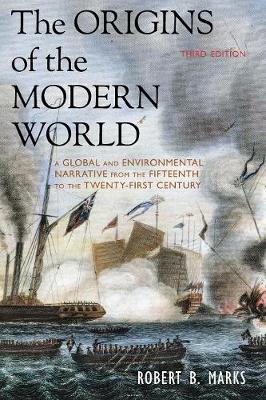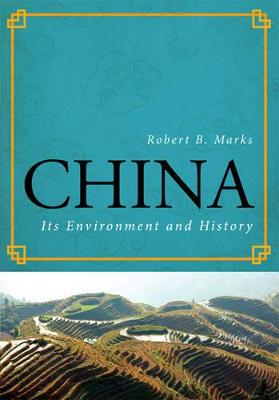World Social Change
2 total works
This clearly written and engrossing book presents a global narrative of the origins of the modern world from 1400 to the present. Unlike most studies, which assume that the “rise of the West” is the story of the coming of the modern world, this history, drawing upon new scholarship on Asia, Africa, and the New World and upon the maturing field of environmental history, constructs a story in which those parts of the world play major roles, including their impacts on the environment. Robert B. Marks defines the modern world as one marked by industry, the nation state, interstate warfare, a large and growing gap between the wealthiest and poorest parts of the world, increasing inequality within the wealthiest industrialized countries, and an escape from the environmental constraints of the “biological old regime.” He explains its origins by emphasizing contingencies (such as the conquest of the New World); the broad comparability of the most advanced regions in China, India, and Europe; the reasons why England was able to escape from common ecological constraints facing all of those regions by the eighteenth century; a conjuncture of human and natural forces that solidified a gap between the industrialized and non-industrialized parts of the world; and the mounting environmental crisis that defines the modern world.
Now in a new edition that brings the saga of the modern world to the present in an environmental context, the book considers how and why the United States emerged as a world power in the twentieth century and became the sole superpower by the twenty-first century, and why the changed relationship of humans to the environmental likely will be the hallmark of the modern era—the “Anthopocene.” Once again arguing that the U.S. rise to global hegemon was contingent, not inevitable, Marks also points to the resurgence of Asia and the vastly changed relationship of humans to the environment that may in the long run overshadow any political and economic milestones of the past hundred years.
Now in a new edition that brings the saga of the modern world to the present in an environmental context, the book considers how and why the United States emerged as a world power in the twentieth century and became the sole superpower by the twenty-first century, and why the changed relationship of humans to the environmental likely will be the hallmark of the modern era—the “Anthopocene.” Once again arguing that the U.S. rise to global hegemon was contingent, not inevitable, Marks also points to the resurgence of Asia and the vastly changed relationship of humans to the environment that may in the long run overshadow any political and economic milestones of the past hundred years.
This deeply informed and beautifully written book provides a comprehensive and comprehensible history of China from prehistory to the present. Focusing on the interaction of humans and their environment, Robert B. Marks traces changes in the physical and cultural world that is home to a quarter of humankind. Through both word and image, this work illuminates the chaos and paradox inherent in China’s environmental narrative, demonstrating how historically sustainable practices can, in fact, be profoundly ecologically unsound. The author also reevaluates China’s traditional “heroic” storyline, highlighting the marginalization of nature that followed the spread of Chinese civilization while examining the development of a distinctly Chinese way of relating to and altering the environment. Unmatched in his ability to synthesize a complex subject clearly and cogently, Marks has written an accessible yet nuanced history for any reader interested in China, past or present. Indeed he argues successfully that all of humanity has a stake in China’s environmental future.

